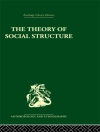The ”Arab spring”, the Spanish indignados, the Greek aganaktismenoi and the Occupy Wall Street movement all share a number of distinctive traits; they made extensive use of social networking and were committed to the direct democratic participation of all as they co-ordinated and conducted their actions. Leaderless and self-organized, they were socially and ideologically heterogeneous, dismissing fixed agendas or ideologies. Still, the assembled multitudes that animated these mobilizations often claimed to speak in the name of ’the people’, and they aspired to empowered forms of egalitarian self-government in common. Similar features have marked collective resistances from the Zapatistas and the Seattle protests onwards, giving rise to theoretical and practical debates over the importance of these ideological and political forms. By engaging with the controversy between the autonomous, biopolitical ’multitude’ of Hardt and Negri and the arguments in favour of the hegemony of ’the people’ advanced by J. Rancière, E. Laclau, C. Mouffe and S. Zizek the central aim of this book is to discuss these instances of collective mobilization, to probe the innovative practices and ideas they have developed and to debate their potential to reinvigorate democracy whilst seeking something better than ’disaster capitalism’.
Giorgos Katsambekis & Alexandros Kioupkiolis
Radical Democracy and Collective Movements Today [PDF ebook]
The Biopolitics of the Multitude versus the Hegemony of the People
Radical Democracy and Collective Movements Today [PDF ebook]
The Biopolitics of the Multitude versus the Hegemony of the People
Acquista questo ebook e ricevine 1 in più GRATIS!
Formato PDF ● Pagine 258 ● ISBN 9781317071952 ● Casa editrice Taylor and Francis ● Pubblicato 2016 ● Scaricabile 3 volte ● Moneta EUR ● ID 4875757 ● Protezione dalla copia Adobe DRM
Richiede un lettore di ebook compatibile con DRM












